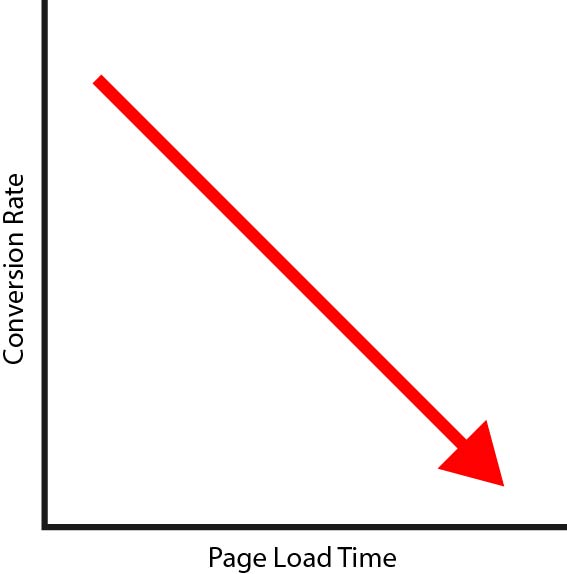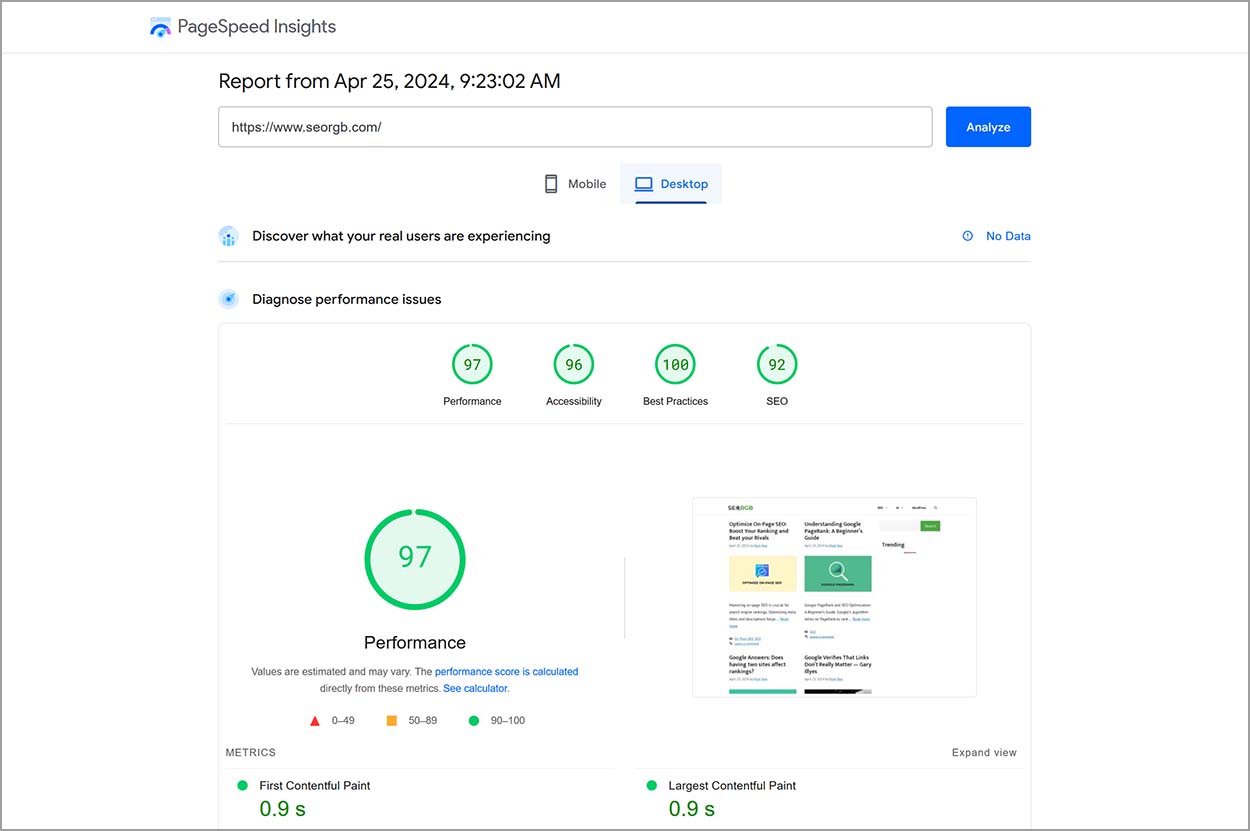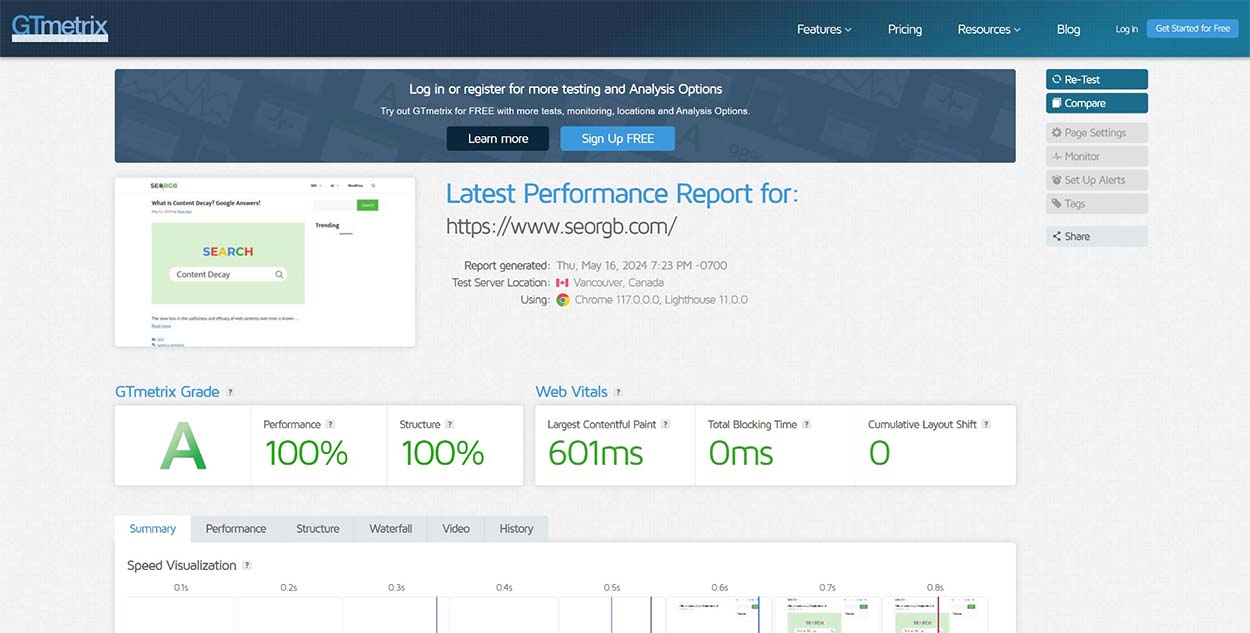Page speed is a key SEO aspect that affects a website’s rankings. Page speed impacts SEO by affecting user experience and search engine visibility and credibility.
Website owners and digital marketers must understand how page speed affects SEO to succeed in the competitive online marketplace.
This article covers all you need to know about page speed and SEO and how to optimise it for search rankings and user experience.
What’s Page Speed?
“Page speed” is how fast your page loads content. The faster your content loads, the faster your page. There’s no single metric that measures how fast your web page loads; thus, page speed is an umbrella notion.
Website page speed should not be compared to automobile speed. Cars can go 100 km/h. Page speed is more than just “this page loads in 4 seconds”. Page speed should be considered part of your website’s user experience.
How Does Page Speed Affect Seo Rankings?
Page speed is a direct factor in how search results are ranked on both desktop and mobile devices. This means that websites that load faster tend to rank higher in search engine results pages (SERPs) than websites that load more slowly.
Slow-loading pages might hurt SEO since search engines prefer fast-loading websites. Page speed also affects bounce rates, as faster pages reduce sudden site abandonment.
Google considers time for the first contentful paint (FCP), the biggest contentful paint (LCP), and the cumulative layout shift (CLS) when determining page performance. These metrics measure a page’s most critical content’s loading speed and layout stability.
Page speed affects the user experience and ranking. Slow-loading websites increase bounce rates and lower conversion rates.
The Impact Of Page Speed On The User Experience (Ux)
A faster page speed can boost visibility, organic traffic, bounce rates, engagement, and trust. According to Google,
“53% of mobile users leave a site that takes longer than 3 seconds to load.”

Sign-ups, subscriptions, purchases, and downloads are all affected by page speed. Faster page speeds reduce friction, improve satisfaction, and create urgency, increasing conversions.
Akamai found that a 100-millisecond website load time delay reduces conversion rates by 7%.
Factors That Affect Your Page Speed
Fast website loading speeds can make or break the user experience and success in today’s fast-paced digital environment. Slow-loading sites annoy users, raise bounce rates, and harm search engine rankings.
Maintaining a competitive edge requires understanding the causes of slow performance. This blog will discuss 10 key variables that can significantly slow website loading times and how to fix them.
Hosting service
Hosting providers provide the server for your website to host it and make it online for everybody. Their server performance impacts your website.
Server configurations, facilities, uptime, and server machine specs affect your host’s performance.
A competent and trustworthy host ensures that your web server can handle requests quickly enough for all site operations.
Poorly written code
JavaScript problems and improper HTML markups can result from bad coding. Poorly optimised code can significantly reduce performance. Remove errors and unnecessary lines from your code.
Your site theme
Your website’s theme can affect your page load speed. Many themes are not optimised for loading faster. As a result, your website can slow down by using a non-optimised theme.
Large Files
Loading large files on web pages is not a good idea. Large files take too many time to load and show on a web page.
Too many widgets and plugins
Too many plugins slow down your website, so utilising too many is counterintuitive. Your page gets heavier with each plugin you install since it adds code.
Unoptimized plugins might also be the cause of slow websites.
No CDN
Without a CDN, webpages load slower because there are no distributed servers. This absence makes them more susceptible to traffic spikes and site crashes.
Redirects
Redirects help visitors and search engines go from one URL to another while keeping SEO value.
Each redirect type—301, 302, and meta refresh—has a particular purpose. The user experience can be improved by properly redirecting links and providing smooth navigation.
Incorrect redirects can cause redirect chains and loops, affecting website performance and search rankings.
How Do I Measure Page Speed?
Website owners can use numerous tools to evaluate page speed’s impact on SEO. Page speed tools like Google’s PageSpeed Insights and GTmetrix reveal loading times, file sizes, and improvement suggestions. To find bottlenecks and speed up websites, Pingdom and WebPageTest provide thorough performance metrics and visualisations. Website owners may make informed judgements and execute SEO methods to increase page speed with these tools.
Google PageSpeed Insights
All webmasters, developers, and site owners can benefit from Google PageSpeed Insights. We’ve seen that many individuals spend hours optimising their sites to score 100/100 on this test.
Google gives the website you tested a score out of 100 based on performance optimisation best practices.
Along with this result, Google will offer many performance and PageSpeed Insights score-boosting suggestions.
Since 2018, Google’s open-source, automated web page quality tool Lighthouse has calculated PageSpeed Insights scores. This platform assesses performance, accessibility, progressive web apps, and more.
GTmetrix
The Canadian company GT.net developed GTmetrix to assist hosting clients in evaluating site performance.
GTmetrix is one of the most popular site speed analysis tools. When you test a website, it gives you a performance score and a report with suggestions for improvement.
Use this free utility. GTmetrix Pro costs $14.95/month for the Bronze subscription and offers limitless report filters and resource use graphs.
GTmetrix uses Google PageSpeed Insights and YSlow to calculate performance scores and suggestions. Since the findings include a wide range of performance parameters and are comprehensive, you don’t need to test them on another tool.
Site owners, engineers, SEO specialists, and others can use this tool to evaluate and enhance their site.


